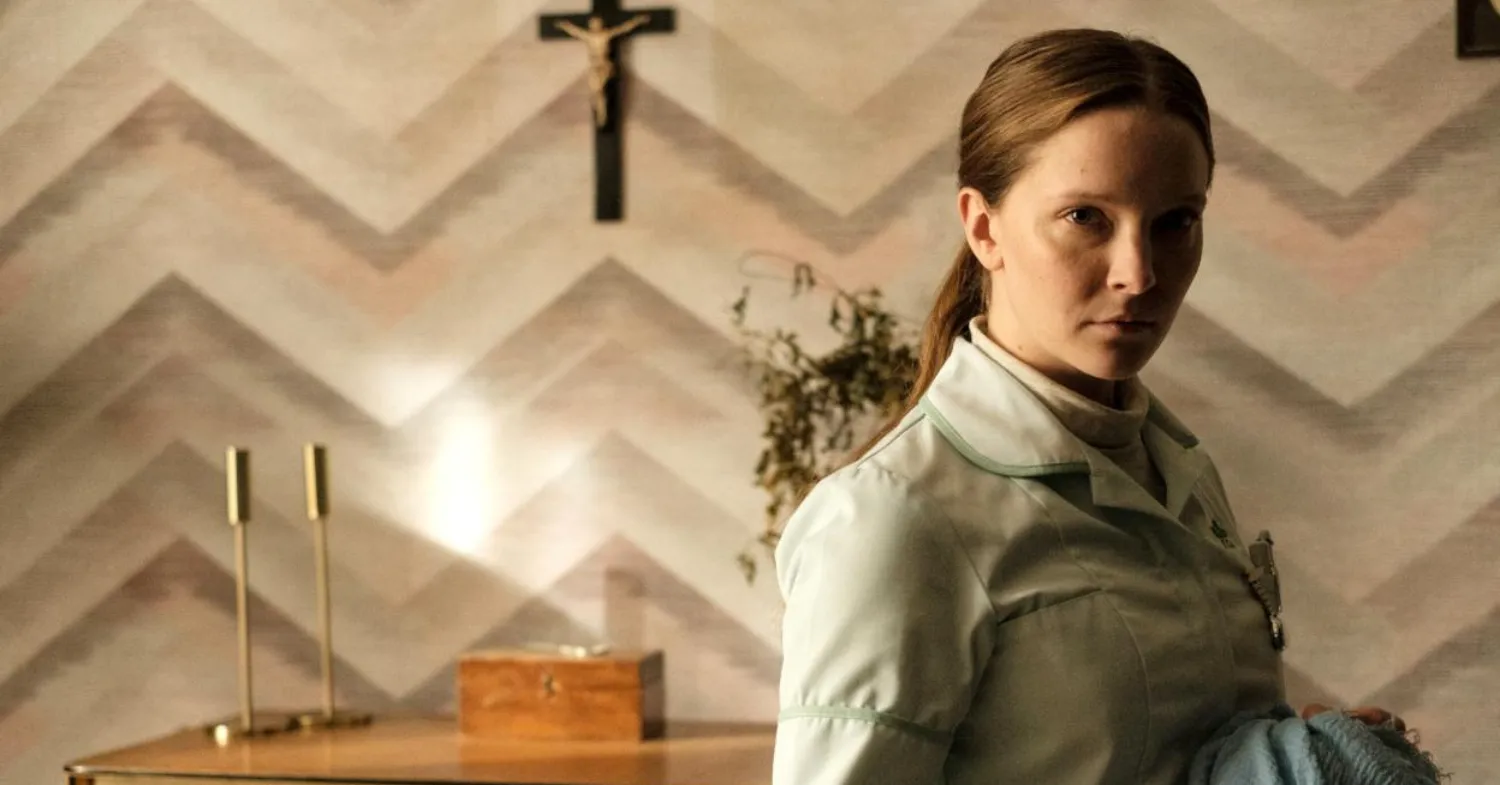Saint Maud certainly has a few of the motifs and themes you’d expect from an A24 horror movie – a real sense of dread and Christian guilt lingers throughout much of its brisk runtime – but the debut from Rose Glass feels like an expansive, reinvigorating mold of those ideals. A few years since its release, Saint Maud remains the best horror movie from the studio in the 2020s.

It’s been a few years since I first saw the debut movie from Rose Glass, Saint Maud, which was a film I loved at the time but hadn’t been able to revisit since then. I recall it landing pretty high on my favorites for 2020, partly because of the circumstances for many of the releases from that year (stuck at home, watching in the dark on your TV versus the atmosphere of a screening at a theater), but also because of it’s ability to break free from the common restraints of the A24 horror tropes.
Saint Maud certainly has a few of the motifs and themes you’d expect from an A24 horror movie – a real sense of dread and Christian guilt lingers throughout much of its brisk runtime – but it feels like an expansive, reinvigorating mold of those ideals. I’ve occasionally bumped up against a few of the quote-unquote “elevated horror” movies that that studio has produced and distributed due to the fact that I don’t think many of the scares are earned in a handful of those films.
Take Talk to Me, for instance, which I slightly admired when it came out in the summer of 2023, but I still found many flaws with. Like Saint Maud, Talk to Me delves into guilt and trauma and how those two combined can inflict pain on someone in profound ways as they deal with grief. They both star incredibly talented, young, and promising female leads – Morfydd Clark in Saint Maud and Sophie Wilde in Talk to Me – and both have a few scenes that completely take your breath away.
But Saint Maud ties up all of the loose ends at the end in a singular and exceptional fashion, delivering one of the decade’s quintessential final shots (blink and you’ll miss it) and one of the more morbid depictions of religion you’ll see depicted on film. I often find many of these prestige horror movies to offer little beyond the surface, as if their themes are hollow once you’ve parsed through them a few times. I feel the opposite of Saint Maud, which opens up quite a bit upon rewatch and rewards multiple viewings.
Jennifer Ehle has less screentime than I remembered as the terminally ill Amanda, whom Maud inflicts religious due diligence on in the first act (and a half). She’s incredibly effective and saddening by offering a vivid portrait of someone reckoning with the last few moments of their life. Her story and inevitable death serves as the engine for the narrative with Maud doing her best to restore faith in Amanda’s heart before the latter’s passing.
And Saint Maud has a relatively brisk runtime clocking in at under 90 minutes. Rose Glass is an incredible conjurer of shots and distinct scenes, and it takes a very short amount of time to feel like you’re in good hands. I’m writing this in the week coinciding with her sophomore film, Love Lies Bleeding, premiering at Sundance. Returning to Saint Maud has me more excited to see what that film is all about.
I’m not sure if my opinion has changed much on Saint Maud upon rewatch. Perhaps it’s only further cemented its place as one of the decade’s best horror movies, as well as one of the best debut movies by a director and screenwriter in that time period. I hope Rose Glass is given the opportunity to make a lot of movies in the foreseeable future, because there’s enough here to suggest a really talented filmmaker is in the works.
Score: 8/10
Saint Maud (2020)
- Cast: Morfydd Clark, Jennifer Ehle, Lily Frazer, Lily Knight
- Director: Rose Glass
- Genre: Horror
- Runtime: 85 minutes
- Rated: R
- Release Date: January 29, 2021
- Movies Like Saint Maud: Heretic, Midsommar, Smile, More Movies Like Saint Maud